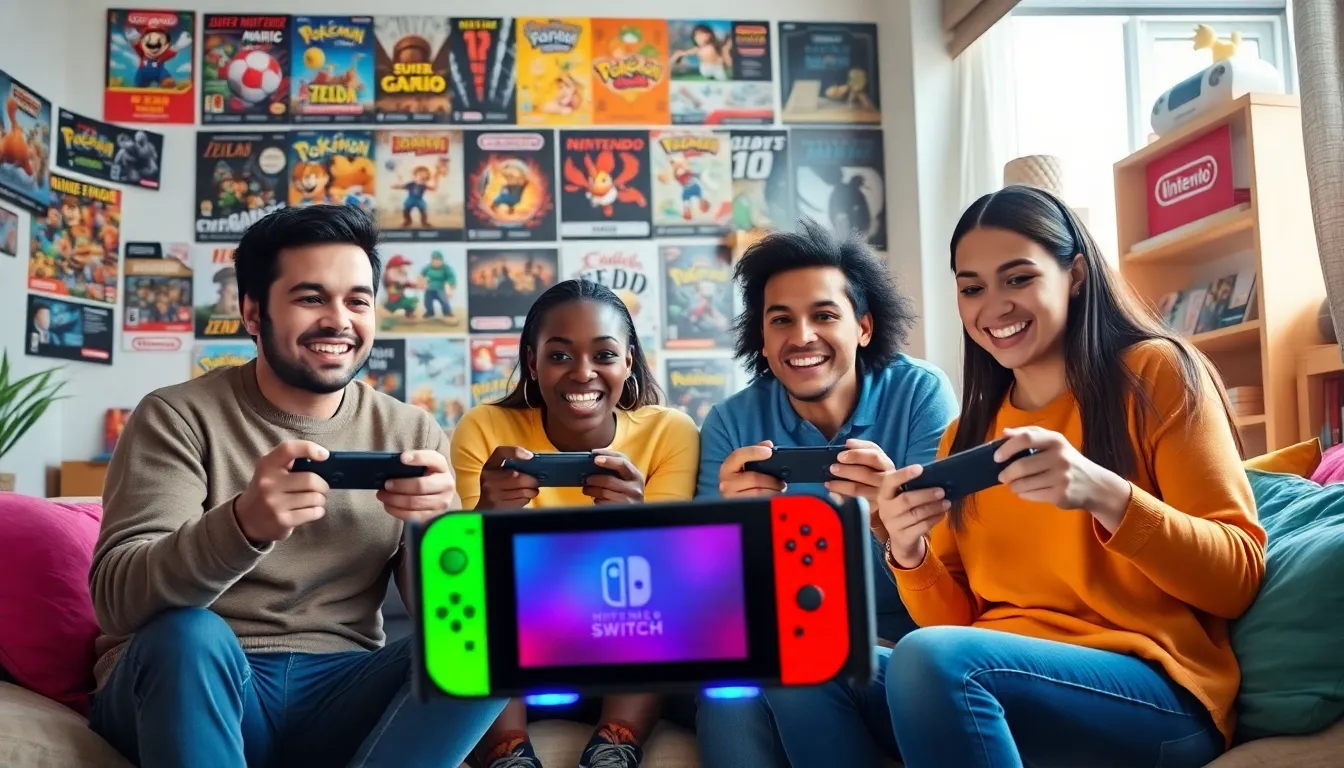Nintendo has etched its name in the annals of gaming history, forever influencing how games are made and played. From the early days of pixelated adventures to present-day innovative experiences, the evolution of Nintendo consoles and franchises has captivated millions. This article explores Nintendo’s legacy, its impact on gaming culture, recent developments, and what the future holds for this iconic brand.
A Brief History of Nintendo’s Legacy

The Evolution of Nintendo Consoles
Nintendo began its journey in 1889 as a playing card company, but it wasn’t until the release of the Nintendo Entertainment System (NES) in 1985 that they truly revolutionized the gaming landscape. The NES not only revived the faltering video game market but also solidified Nintendo as a household name. Following the NES, the Super Nintendo Entertainment System (SNES) brought enhanced graphics and sound, ushering in the age of 16-bit gaming.
The 2000s saw Nintendo experiment with unique hardware, introducing the Wii in 2006, which leveraged motion-sensing technology to attract a broader audience. The Wii’s commercial success was a testament to Nintendo’s ability to innovate, proving that gaming could be accessible and fun for all ages. More recently, the Nintendo Switch has combined the home and handheld consoles, allowing players flexibility and on-the-go gaming experiences. This evolution showcases Nintendo’s knack for adaptation and innovation in the ever-changing gaming landscape.
Iconic Nintendo Franchises
Alongside its hardware innovations, Nintendo has birthed numerous groundbreaking franchises that are now part of gaming lore. Titles such as CSuper Mario, CThe Legend of Zelda, and CPok�e9mon have shaped player experiences and expectations over the decades. Each franchise has its own identity, yet they share common traits of creativity, exceptional storytelling, and engaging gameplay.
For instance, Super Mario pioneered side-scrolling platformers, influencing countless games with its tight controls and level design. Meanwhile, The Legend of Zelda introduced open-world exploration, merging puzzles with action, while Pok�e9mon dove into creature collection and battling that hooked an entire generation. The impact of these franchises cannot be overstated: they not only brought joy to players but also established benchmarks for quality across the industry.
Nintendo’s Impact on Gaming Culture
The Role of Community and Fan Engagement
Nintendo understands that community engagement is vital for lasting success. The company has cultivated strong relationships with its fan base through various initiatives, including Nintendo Direct, a digital showcase where fans can get sneak peeks of upcoming titles and announcements. This strategy has created an engaged community that shares excitement, theories, and feedback, effectively turning fans into ambassadors for the brand.
Also, Nintendo hosts events like E3, where fans can experience demos and meet the developers behind their favorite games. These events foster a sense of belonging among fans, encouraging them to share their passion with others. Such community involvement creates a ripple effect, boosting Nintendo’s brand visibility and loyalty.
The Importance of Nostalgia in Gaming
Nostalgia plays a crucial role in Nintendo’s continued success. For many, Nintendo games represent cherished childhood memories, making the brand resonate on a deeper emotional level. The consistent re-releases of classic titles for modern consoles and the successful Super Mario Bros. Movie release in 2023 demonstrate how nostalgia can reignite interest among older fans while attracting new ones.
Besides, Nintendo often includes nostalgic elements in new titles. For example, Super Mario Odyssey incorporates gameplay mechanics reminiscent of earlier titles while introducing fresh ideas. By cleverly balancing nostalgia and innovation, Nintendo creates products that appeal to a wide range of players, from the seasoned veteran to the curious newcomer.
Recent Developments and Future Prospects
Analyzing Nintendo’s Strategy in the Gaming Market
In an era rife with competition, Nintendo continues to navigate the gaming market effectively. The hybrid model of the Nintendo Switch has allowed it to outperform competitors in sales, particularly during the pandemic when home entertainment options surged in popularity. By targeting a diverse demographic, casual gamers, families, and hardcore fans, Nintendo has carved out a unique niche.
Also, Nintendo’s exclusive titles serve as major selling points for its consoles. Games like Animal Crossing: New Horizons not only provide entertainment but also create social experiences, allowing players to connect with friends. This strategic focus on exclusive content sets Nintendo apart from rivals like Sony and Microsoft, who have different gaming strategies.
Upcoming Releases and What They Mean for Gamers
Eyes are keenly set on Nintendo’s upcoming releases, which promise to continue the tradition of excellence. Titles like The Legend of Zelda: Tears of the Kingdom have generated considerable buzz, signaling Nintendo’s commitment to innovation while also staying true to beloved formulas. Players eagerly anticipate what new mechanics and story elements will surface, further enrichening the gaming experience.
Also, with the companies investing in VR and augmented reality technologies, there’s speculation about future hardware capable of supporting these advancements. Nintendo has historically been a trailblazer, so the potential integration of such technologies may redefine gameplay once again. As these upcoming releases roll out, they may further enhance Nintendo’s reputation as a pioneer in the gaming world.
Conclusion
Nintendo’s journey is a testament to its ability to innovate, adapt, and connect with players across generations. From its captivating consoles and beloved franchises to its pivotal role in building gaming culture, Nintendo continues to leave an indelible mark. As it prepares for future endeavors, fans can be excited about what lies ahead, knowing that the legacy of creativity and community engagement will persist, keeping the spirit of gaming alive and vibrant.
